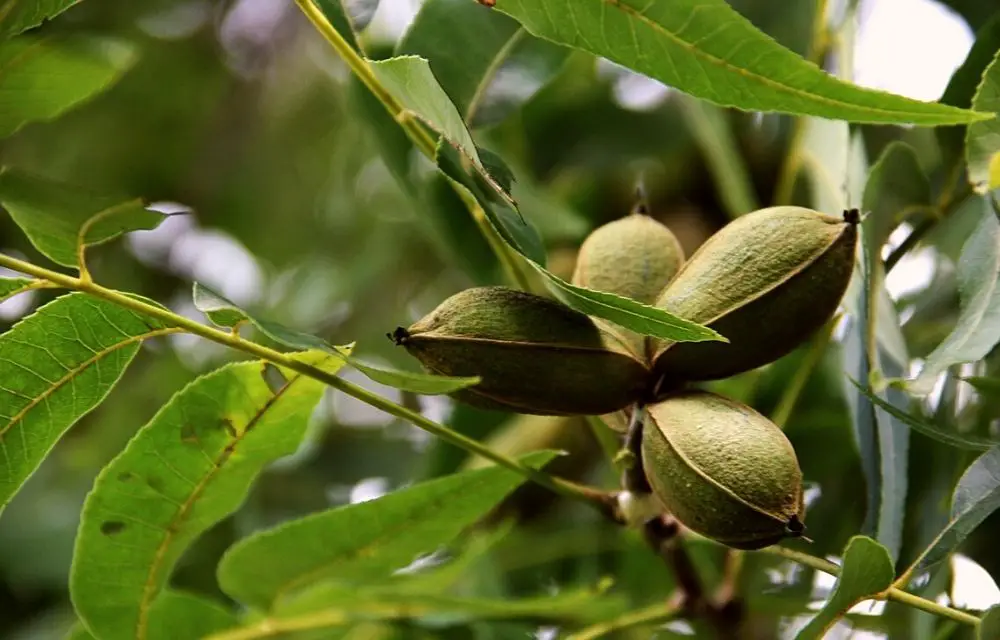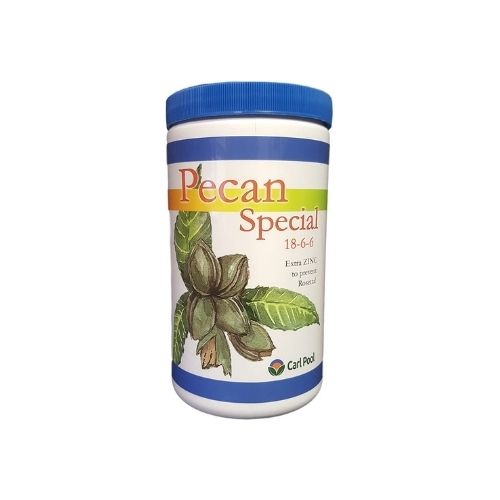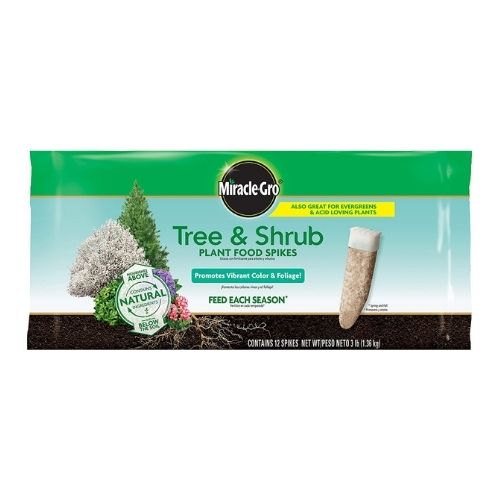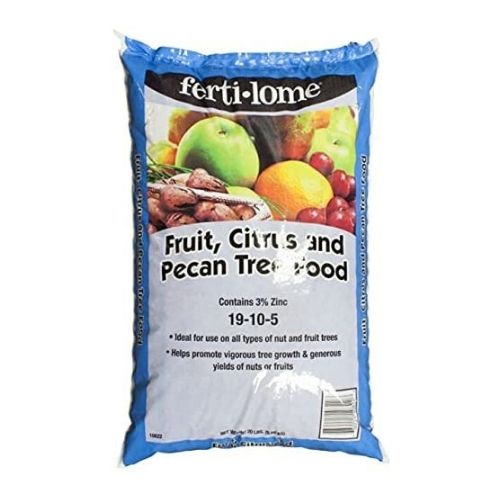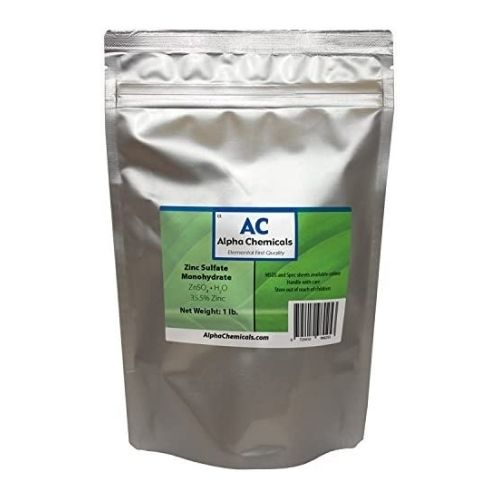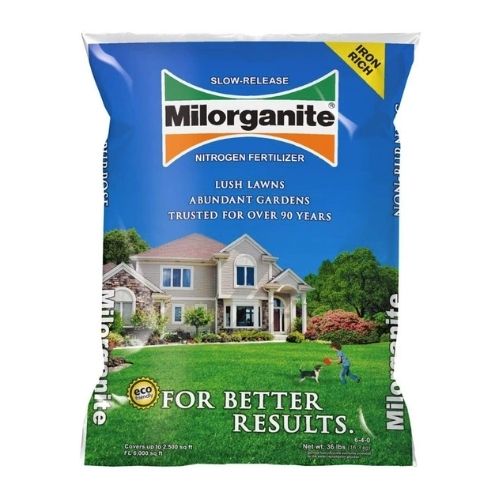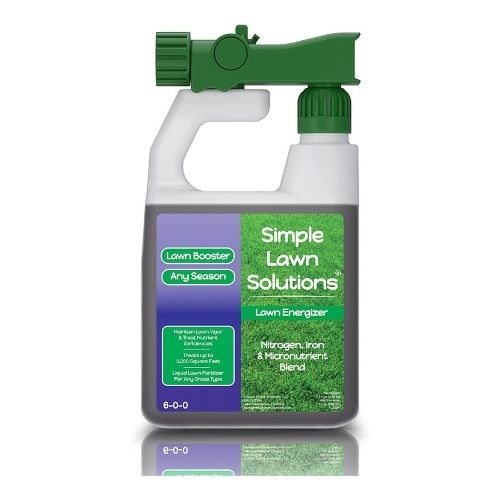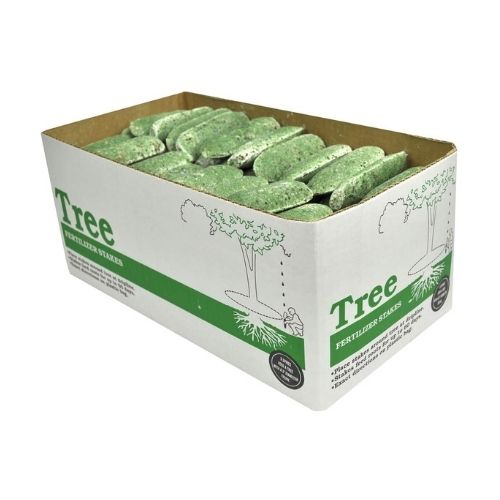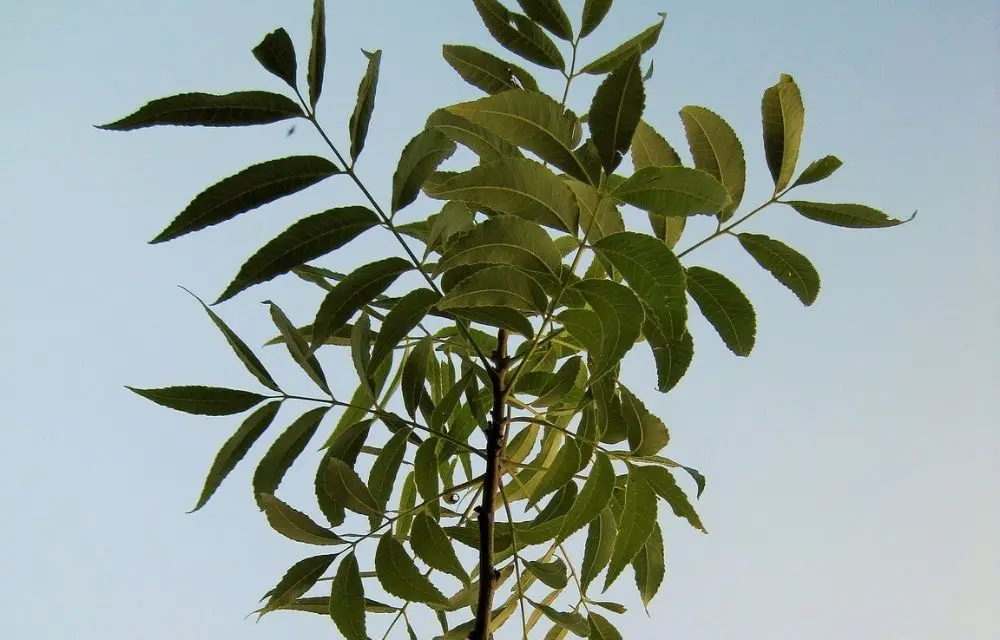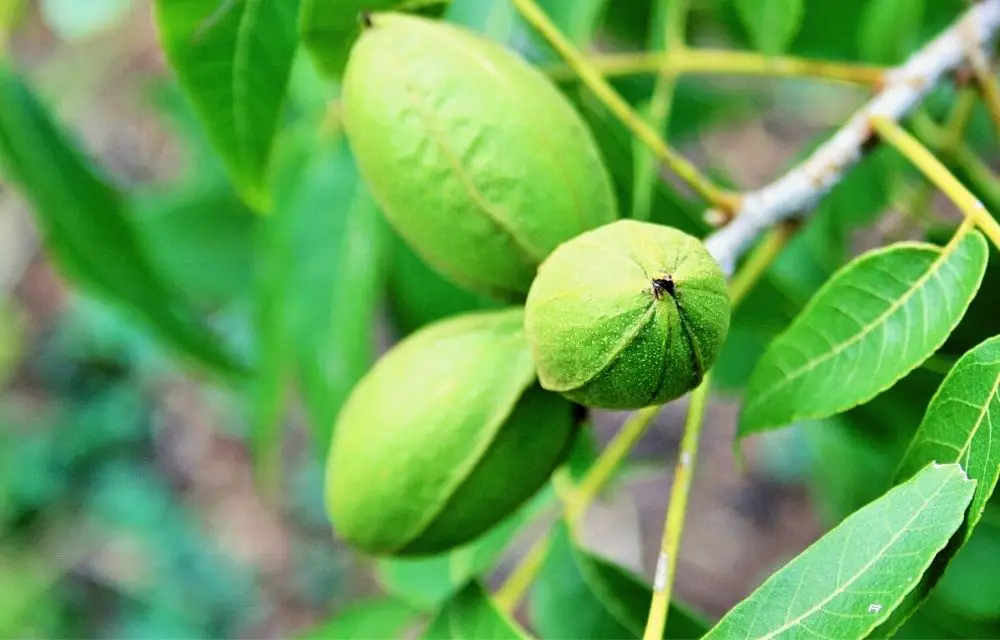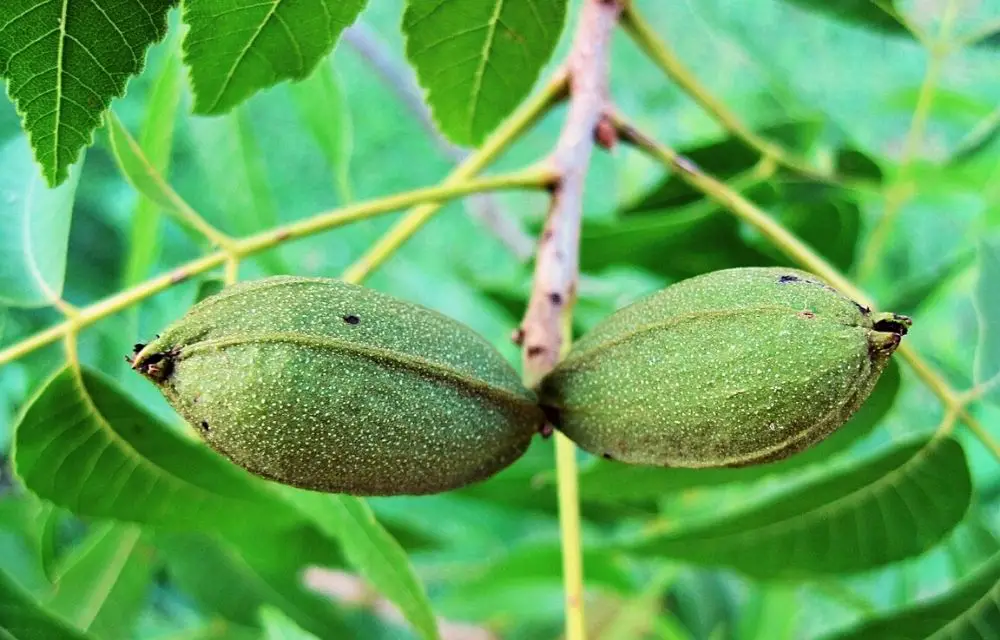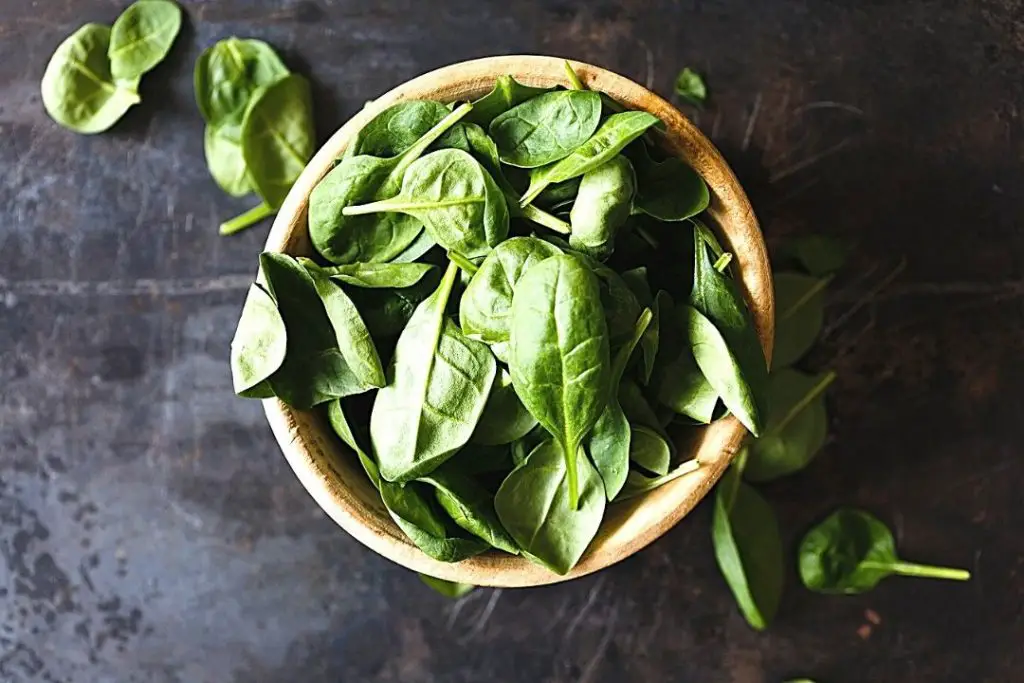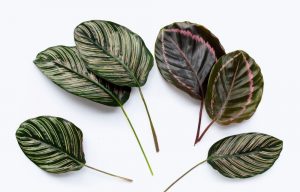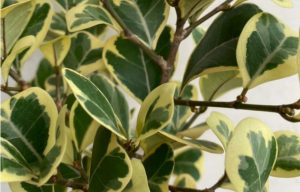Pecan Trees is a tall magnificent species that is usually cultivated for its seed. The seed is an edible nut which is commonly used in various recipes, such as praline candy and pecan pies.
They are a wonderful large tree to add to your yard. They also produce a delicious nut that can be used in baking or even eaten directly.
Growing Pecan Trees can be tricky however, with the right conditions and most importantly finding the best fertilizer for pecan trees is detrimental to your tree’s quality.
What are Fertilizers?
Fertilizers are nutrients that are vital for a plant’s growth. Choosing the best fertilizer for pecan trees is extremely important in determining the health and quality of your pecan tree. There are various types of fertilizers that are perfect for your tree.
Types of Fertilizers
Zinc
The first is zinc fertilizers. These types of fertilizer are usually applied to improve cultivar pecan trees as a foliar spray. Trees that are young or growing need zinc in their diet on new growth during the spring starting at bud break and continuing for three sprays at 2- to 3-week intervals.
Nitrogen
Next is nitrogen fertilizers which are usually made from urea, the single-most required nutrient. Pecan trees grow quickly and need a good amount of nitrogen for the best production. However many other good fertilizers derived from ammonia. Therefore, the ammonia is oxidized to make nitrate fertilizer. This conversion of ammonia to nitrate takes place through the microbial process called nitrification.
Phosphorus and Potassium
Phosphorus and potassium are also important in fertilizers. Phosphorus is needed by plants to help form new roots, create new seeds, fruit and flowers. Whereas potassium assists the plant to grow strong and healthy stems and speed up its growing rate. Potassium also helps the plant to fight off diseases that it may be infected by.
7 Best Fertilizer for Pecan Trees
This is a special mix which is one of the best fertilizer for pecan trees.
It is ideal for all Pecan Varieties, feeds all Fruit and Nut Trees. It also has zinc which is important in preventing rosetta’s disease.
A fertilizer that tree lovers must have. This fertilizer promotes vibrant colour, lush foliage and contains natural ingredients.
You can use this fertilizer for evergreens and acid loving plants. It is easy-to-use and releases nutrients directly into the root zone which promotes strong and healthy trees/ shrubs.
This fertilizer mix is suitable for all types of nut and fruit trees.
This will ensure that your tree grows vigorously with generous yields of fruits or nuts. This is definitely a fertilizer tree lovers need in their toolbox.
Pecan tree gardeners need this for moss remediation. This zinc based fertilizer is great for pecan trees.
This product is mainly used as a source of zinc however it has many other uses including water treatment, animal feed supplement, along with many other uses.
A slow release of nitrogen fertilizer helps promote healthy growth of lawns,trees,shrubs and flowers.
Feeds up to 10 weeks and the iron delivers a long lasting green. This is a trusted fertilizer that has been used for over 90 years which you need in your garden today.
A fertilizer that boosts and provides the essential nutrients needed to darken the green in your plants.
This is a commercial grade intense booster treatment in a ready-to-use hose end sprayer which is convenient for plant lovers.
Spikes and nourishes the roots of your plant. Avoid wasteful runoffs, messes, hazards or smells with this fertilizer.
It also provides a continuous supply of nutrients below in earth when active roots are growing.
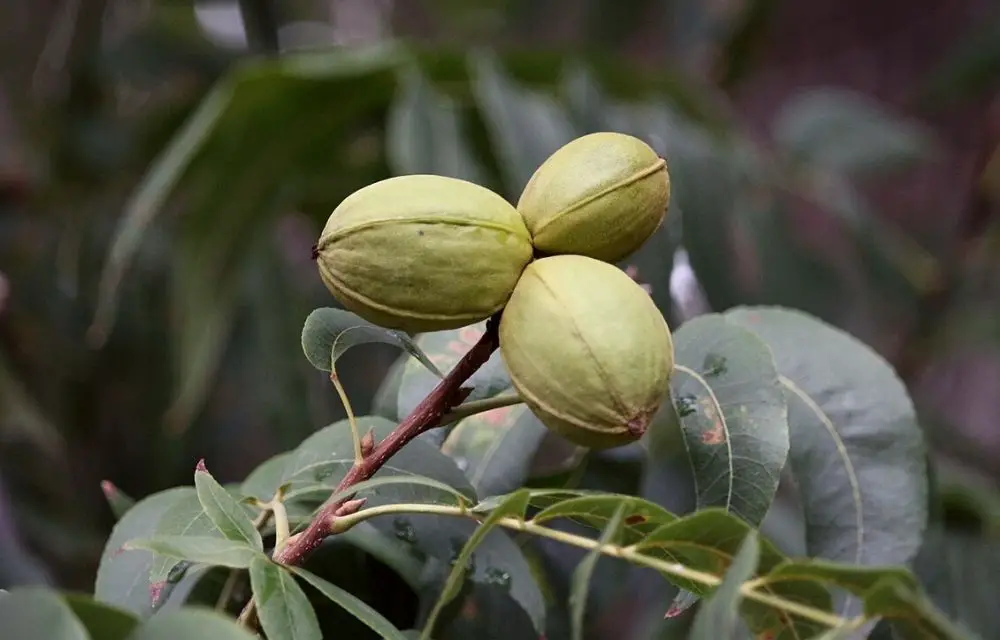
Pecan Trees Care Guide
Soil
To grow a healthy and happy pecan tree the condition of the soil plays a vital role. Some roles to consider in choosing a site for planting your pecan tree are soil, depth and drainage.
Pecan trees will grow in almost any soil in the southern states except soils that have poor drainage, stiff clays or thin sands with a high water table.
The color of the soil in planting pecan trees may be red,brown or gray in colour. It is necessary for the soil to contain sandy-loam and the subsoil be of clay or semi-clay structure.
It is extremely important for the soil to have a good water holding capacity which will allow your tree to have a proper root penetration.
Light
Sunlight is extremely important in Pecan Trees growth just like any other plant. Pecan trees require careful canopy management to avoid self-shading and to maintain productivity. The leaves in a pecan tree typically intercept 65% to 70% of available sunlight with up to 95% light interception in overcrowded, unpruned orchards which will affect the photosynthesis process. To improve the amount of light penetration, pecan tree gardeners usually use pruning techniques to increase photosynthesis in your pecan tree and its flowering.
Watering
Watering is another significant aspect of growing a healthy pecan tree. A pecan tree needs roughly about 100 to 200 gallons of water per day from April through October which is about 2 inches of water every week. Most water in Pecan Trees is lost to transpiration through the stomates or leaf pores. The transpiration allows the leaves to stay cool and avoids them from burning up in the intense heat of the summer which therefore enables the tree to make food to feed itself.
Temperature
Providing the ideal temperature for your Pecan tree will allow your tree to thrive and flourish to be healthy and abundant when providing fruits. Pecan trees are not fans of cold weather. An average of 45 to 55 degrees in winter is ideal but they can withstand temperatures down to 20 degrees and below. On the opposite spectrum Pecan Trees don’t like temperatures much hotter than 80 degrees. The ideal temperature for your Pecan Tree should be between 40 to 80 degrees.
Humidity
The next aspect to consider for your Pecan Tree is the humidity surrounding it. High humidity and rainfall are ideal for the development of scab. The best production areas are those with short,cold winters, hot summers, with no early or late frost and a humidity that ranges below 55% during the growing season.
Fertiliser
Again, a huge factor in growing a healthy Pecan Tree is the type of fertiliser that you are providing your plant with. The lack of adequate nutrient availability will weaken and predispose your Pecan Tree to diseases and disorders. Therefore, to ensure that your tree is in its optimum health to produce high-quality nuts, it is imperative for you to fertilize consistently.
Here are the recommended ranges for nutrient levels for your Pecan Tree:
- Phosphorus : 30–60
- Potassium : 60–150
- Sulfur : 10–50
- Calcium: 400–900
- Magnesium: 90–100
Toxicity
Pecan tree juglone quantities do not commonly affect animals unless ingested in large amounts. It can cause laminitis in horses and is not recommended to be fed to dogs either. Pecans and other nut types may cause gastric intestinal issues or obstructions which can be serious. Mouldy pecans may contain tremorgenic mycotoxins which are neurological symptoms.
If you are troubled with plant failings near your Pecan Tree, you can try replanting juglone tolerant species such as:
- Arborvitae
- Autumn olive
- Red cedar
- Catalpa
- Clematis
- Crabapple
- Daphne
- Elm
- Euonymus
- Forsythia
Pruning
Pruning your Pecan Tree should take place at the end of winter, right before your tree starts forming new buds. This allows the tree to avoid putting too much energy into new growth that is just going to be cut away. As your tree grows, trim away any branches that have a tighter angle than 45 degrees as these branches will end up growing to be weak and fragile.
Additionally, prune back any branches that are 1.5m or lower. Pruning is also possible during the summer days, especially consider pruning during the summer when branches are becoming overcrowded. Never allow your Pecan Tree to have branches that are rubbing together and allow enough space for air and sunlight to get through the branches as this will reduce the risk and spread of various diseases.
Propagation and Growth
Propagation is always a fun and exciting way to increase the number of trees in your garden. Pecan trees are easy to propagate in a variety of different methods. This includes planting pecan seeds and rooting pecan cuttings. Out of these two ways of propagating the Pecan Tree, using pecan cuttings is preferable since each cutting develops into a clone of the parent plant which means it will grow the exact same type of nuts.
Rooting pecan cuttings is easy and takes little time. Growing pecans from cuttings start with taking six-inch tip cuttings during Spring. Pick side branches about as thick as a pencil and ensure they are flexible. Make the cuts on a slant, positioning the pruners just below the leaf nodes. For cuttings from the pecan tree, you will want to look for branches with a lot of leaves but don’t have any flowers.
Growing pecans from cuttings begins with preparing your cuttings by getting them from pecan trees. You will then need to prepare containers for your cuttings. Small, biodegradable pots which are less than six inches in diameter are ideal. Fill each one with perlite then pour water until the container is thoroughly wet. Remove any leaves from the bottom half of the cutting and dip the end of your cutting in root hormone, then press the stem into the perlite.
Add more water then place the plant outside in a sheltered area. Mist the cuttings every day to ensure the plant is kept moist. Add water to the soil as well. You want to make sure that the cutting and perlite don’t dry out because then the cutting won’t take root. Next is to remain patient as your plant takes root and with time when the roots develop and become strong you can transplant the cuttings into a larger container (after a month). Only transplant into the ground the following Spring.
Repotting
Keep your Pecan Tree moist all the time before you begin the transplantation process. Thoroughly water the tree when you have purchased it or got it from a friend and plant it as soon as possible. Pecan trees purchased as bare-root stock should be placed in soil and watered to protect the roots from drying out especially during the hot summers. Lastly, get rid of any packing material on the bare roots, and soak the roots of your pecan tree for roughly an hour before transplanting.
Common Issues with Pecan Trees
Pecan Trees just like any other plant have a variety of common issues and diseases to look out for. These trees are susceptible to a number of diseases due to the hot and humid environmental conditions.
Luckily, these diseases or even a combination of diseases are never enough to kill the tree. Although the disease usually affects the tree in two ways. First, disease can reduce the tree’s vigor, which in-turn causes the foliage and branches to begin shedding which results in a loss of shade value. Secondly, the disease will also infect the nuts and reduce both the quality and quantity of your tree’s nuts.
If the disease pressure on your tree is great there may be no viable nuts at all. Therefore, keeping your Pecan Tree healthy from diseases is extremely important in yielding high-quality harvests.
Fertilizer for Pecan Trees Frequently Asked Questions
What is the best time to fertilize pecan trees?
Pecan Trees should be fertilized during the late dormant season. Which is in February or early March. Moreover, if fertilizer is applied during an extended dry period, it is best to water the area thoroughly with a sprinkler, applying 1 to 2 inches of water.
How do you fertilize a pecan tree?
Begin by applying half the amount of fertilizer you intend to use about a month or so prior to what is typically the last frost date in your area in late winter or early spring. Spread the other half of fertilizer about 30-45 days after the first application, but no later than the end of May.
Fertilization timing for pecan trees is very important and varies from one region to another. It’s a good idea to consult with your local nurseries to find out when is the best time to fertilize pecan trees in your area.
How do you increase the yield of pecans?
Pecan trees depend on substantial amounts of soil nutrients to grow healthy and provide a good yield. Fertilization is dire as periods without fertilization can reduce growth and nut production.
Soil testing and applying the ideal amounts of lime and fertilizer is the simplest method for gardeners to increase the productivity of their beautiful pecan trees.
When should I put lime on my pecan tree?
If your Pecan Tree is more than 25 years old you will need about 100 pounds of lime per tree each year.
Do pecan trees like coffee grounds?
Pecan Trees thrive in acidic soil which means that they will love coffee grounds.
Why are my pecan trees not producing?
There are a number of reasons why your Pecan Tree is not producing nuts:
1. Poor Soil
Pecan Trees thrive best on sandy loam soil with well-drained subsoil.
2. Inadequate lime or fertiliser
The lack of lime. Nitrogen and Zinc fertilizer are common factors that reduce the production of pecan nuts. Fertilize your Pecan Tree according to soil and leaf sample recommendations.
3. Too much or too little water
Soils, where there is water stagnancy, does not provide aeration for your pecan tree’s roots. The lack of water during the dry season will result in reduced yields and quantity. Therefore, well-drained soil is important as well as watering your trees often during the dry season.
4. Poor pollination
An isolated pecan tree usually won’t be pollinated well as most varieties shed pollen too early or too late to pollinate the female flowers of the same tree.
5. Overcrowding
Exposure to direct sunlight is important for pecan trees to thrive. Removing branches and trees that are overlapping will increase your pecan trees yield.
6. Disease and Insect Pests
Scabs in pecan trees tremendously limit production on unsprayed pecan varieties. Even varieties previously resistant to scab are currently being affected. Several other diseases can also cause a decrease in nut production.
Conclusion
To conclude, Pecan Trees will produce an abundance of fruits if all its needs are taken care of. It is not difficult to grow a high-quality pecan tree however it does take consistent care and nurturing. Rest assured that your Pecan Tree will reward you greatly for all your hard work, care and love. We wanted to make sure you would spend most of your time on gardening than worrying about your pecan tree so we decided to come up with this post on the best fertilizer for pecan trees for you. Now you can go back to gardening!
Related articles:


